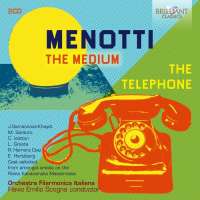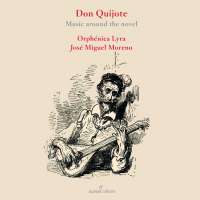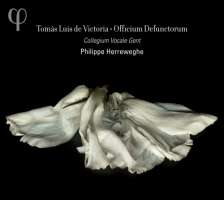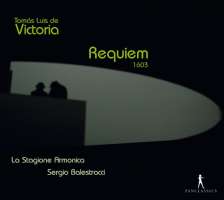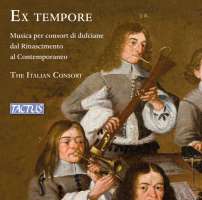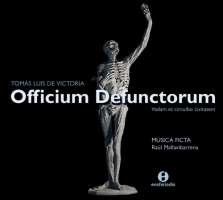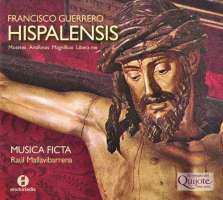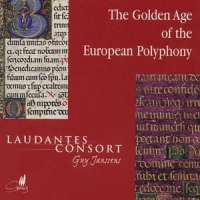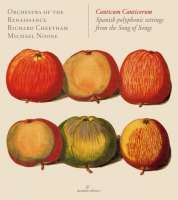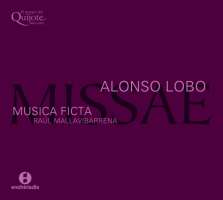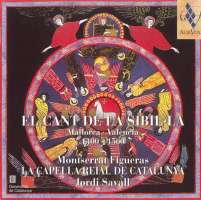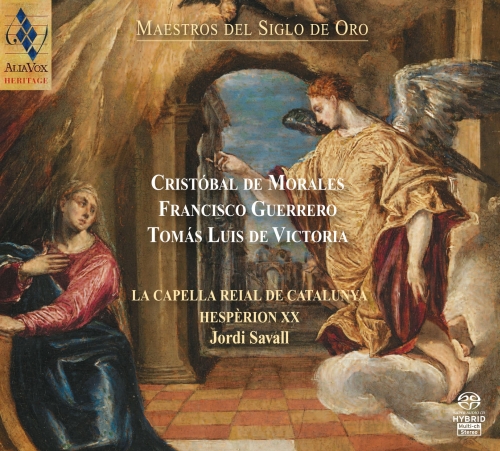
classical music distribution

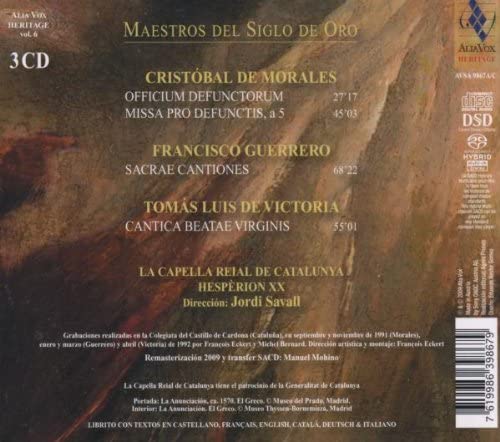
(Produkt nie został jeszcze oceniony)
kompozytor
Victoria, Tomas Luis de;
Guerrero, Francisco
tytuł
MORALES: Officium Defunctorum, Missa pro Defunctis, GUERRERO: Sacrae Cantiones, VICTORIA: Cantica Beatae Virginis
wykonawcy
La Capella Reial de Catalunya;
Savall, Jordi;
Hespèrion XX
Savall, Jordi;
Hespèrion XX
nr katalogowy
AVSA 9867
opis
Almost every great Iberian composer of the 16th century has at least one version of the Missa pro defunctis. These works are in the mood of a severe mysticism that dominated much of Spanish culture at the time as a result of the spiritual turmoil and the crisis of values in Europe during the Reformation. In its dramatic texts, the Requiem covers all the themes that dominated man's fears at the time: the rapid passage of time, the transience of nature and earthly life, the contrast between mortality and eternity, the soul's guilt for God, fear of the Last Judgement and man's plea for divine grace. • The five-part Missa pro defunctis by Cristóbal de Morales was printed in Rome in 1544, but its exact date of origin remains unknown. It was probably composed in Rome between 1535 and 1545, when Morales was a singer in the papal chapel. This Requiem is a work of splendid dimensions and yet of austere, serene and inward-looking nature, full of restraint and deep emotion. The Officium defunctorium is kept in the music archives of the Cathedral in Puebla, Mexico. It was sung a few years after the composer's death in Mexico City during the solemn funeral rites marking the death of Charles V in November 1559.
• Morales, C: Missa Pro Defunctis, A 5
• Morales, C: Officium Defunctorum
• Victoria: Cantica Beatae Virginis
Works: • Guerrero, Francisco: Sacrae Cantiones
• Morales, C: Missa Pro Defunctis, A 5
• Morales, C: Officium Defunctorum
• Victoria: Cantica Beatae Virginis
nośnik
SACD
x 3
gatunek
Muzyka klasyczna
producent
Alia Vox
data wydania
17-06-2009
EAN / kod kreskowy
7619986398679

(Produkt nie został jeszcze oceniony)
cena 125,00 zł
lubProdukt dostępny.
Wysyłka w ciągu 3 dni roboczych
Darmowa wysyłka dla zamówień powyżej 300 zł!
Darmowy kurier dla zamówień powyżej 500 zł!
sprawdź koszty wysyłkiProduktu jeszcze nie zrecenzowano, chcesz być pierwszy?
Klienci, którzy kupili ten produkt, kupili również
różni kompozytorzy, Bernstein, Leonard
Dietrich, Marlene: Naughty Lola (1928-1941)
8.120776
Pozostałe płyty tego kompozytora
Victoria, Tomas Luis de, Penalosa, Francisco de
Victoria: Missa O Magnum Mysterium; Peñalosa: Magnificat; Motets
CPO 555 398-2
różni kompozytorzy
Santiago a cappella (Llibre vermell de Montserrat, Guerrero, Lobo, Victoria, Cardoso, ...)
SDG 710
Victoria, Tomas Luis de, Guerrero, Francisco
Canticum Canticorum: Morales, Victoria, Guerrero
GCD C81403
Pozostałe płyty tego wykonawcy
Bach, Johann Sebastian
Bach: Les quatre ouvertures - Suites pour orchestre BWV 1066-1069
AVSA 9890
Purcell, Henry, Merula, Tarquinio, Pachelbel, Johann
Ostinato: Pucell, Merula, Pachelbel
AV 9820
Cabezon, Antonio de, Pisador, Diego, Cervantes, Ignacio
Don Quijote de la Mancha
AVSA 9843
Napisz recenzję dla: MORALES: Officium Defunctorum, Missa pro Defunctis, GUERRERO: Sacrae Cantiones, VICTORIA: Cantica Beatae Virginis
Zapytaj o dostępność produktu
Twoje zapytanie:
Odpowiemy na adres:
Produkt został dodany do koszyka

Victoria, Tomas Luis de, Guerrero, Francisco
MORALES: Officium Defunctorum, Missa pro Defunctis, GUERRERO: Sacrae Cantiones, VICTORIA: Cantica Beatae Virginis
1 szt










